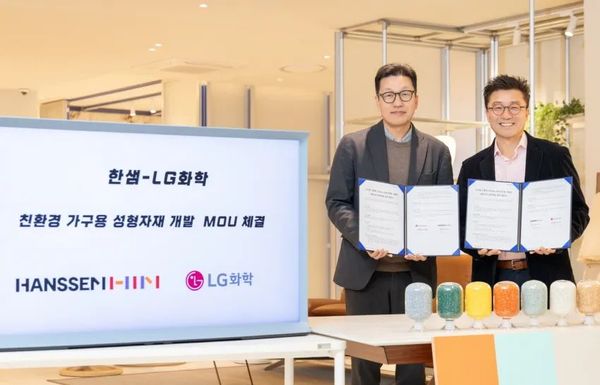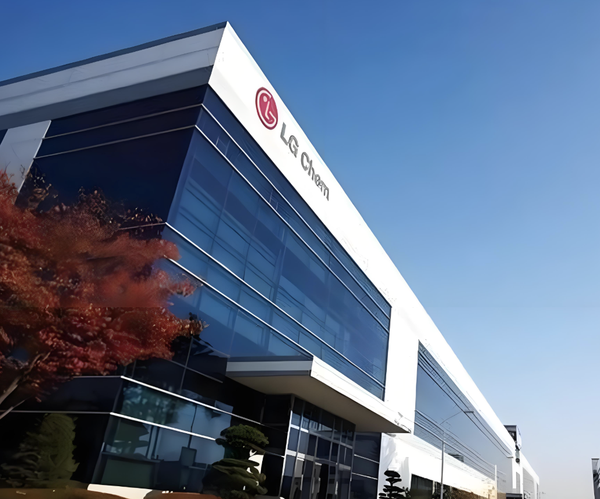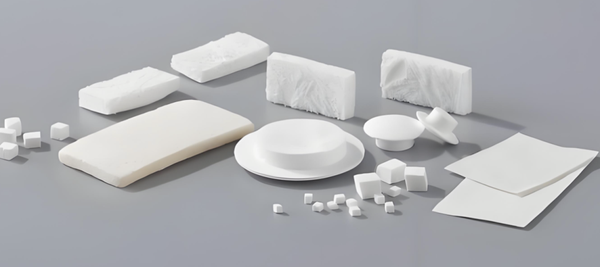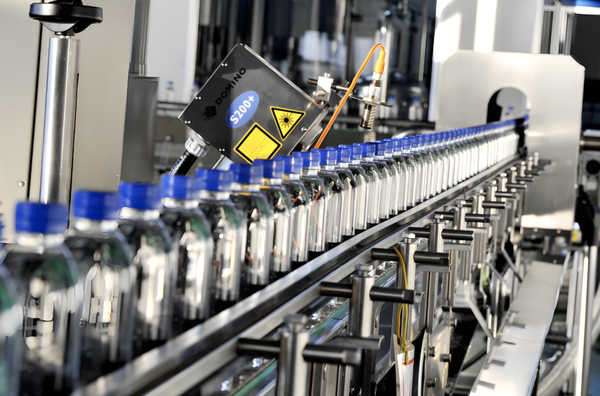LG Chem: Corn starch and other products replace petroleum-based materials! The first to achieve commercialized bio-based acrylic acid.
LG Chem's bio-based ASA material enhancement will make it the first company to commercialize bio-based acrylic acid.
Recently, LG Chem announced that it has signed a Memorandum of Understanding (MOU) with Hanssem, a South Korean home furnishings company, for the joint development of eco-friendly molding materials for home use, officially entering the eco-friendly kitchen home materials market. Through this agreement, LG Chem will provide high-performance plastics made from plant-based materials, specifically ASA (Acrylonitrile Styrene Acrylate), to be used as surface materials for Hanssem's kitchen home products under the "e'clat" brand. The "e'clat" products are expected to be launched in the first half of the year, and these products will feature the "LETZero" eco-friendly brand logo for consumer sales.

Traditional ASA (Acrylonitrile Styrene Acrylate) is made from SAN (Styrene Acrylonitrile copolymer) and acrylic rubber, also known as impact modified resin, and belongs to engineering plastics. SAN (AS) features transparency, glossiness, impact resistance, and chemical resistance, and is widely used in various products such as home appliances, office equipment, and cosmetic containers. Acrylonitrile (A) provides rigidity, styrene (S) enhances processability, while acrylic (A) rubber acts like an elastic network that absorbs impact.
Therefore, in terms of application scenarios, ASA is used for kitchen and household surface materials, such as countertops and cabinet panels (oil and high-temperature steam resistant), as well as bathroom fittings (moisture resistant). It may replace traditional plastics or wood, offering better weather resistance and aesthetics.
LG Chem's breakthrough lies in replacing part of the petroleum-based raw materials with plant-based components such as corn starch, significantly reducing the carbon footprint while maintaining weather resistance comparable to traditional ASA (resistance to degradation, aging, and fading caused by UV exposure). Even more noteworthy is that the introduction of plant-based monomers has not compromised processing advantages, exhibiting higher strength and flowability, as well as a high gloss (gloss at 60° angle > 90) and fingerprint resistance, making it suitable for high-end home aesthetics.
Based on raw material substitution, this collaboration may suggest an improvement in the recyclability of LG's bio-based ASA materials. Go Yeong Nam, director of the Hansen Institute, stated: "Most materials used in households are difficult to recycle and are often incinerated when discarded, which inevitably leads to an increase in carbon emissions. Therefore, we will implement low-carbon emission reduction actions by developing eco-friendly home molding materials."
Traditional ASA often experiences phase separation during melt regeneration due to the presence of acrylate rubber, leading to a significant decline in mechanical properties. As a result, it is typically only suitable for downgrading or landfilling. Biobased ASA, if using chemical depolymerization technologies like the LETZero system from LG Chem, can be depolymerized into monomers for re-polymerization, achieving closed-loop recycling and theoretically overcoming the recycling bottleneck of traditional ASA. However, this technology requires supporting chemical recycling facilities and has higher operational complexity and energy consumption compared to traditional mechanical recycling.
On February 13th, LG Chem announced that it will begin producing bio-based acrylic acid in the second quarter of this year, with an annual production capacity of 100 tons. LG Chem may become the first company to commercialize bio-based acrylic acid, completing the final piece of the ASA commercialization chain.



【Copyright and Disclaimer】The above information is collected and organized by PlastMatch. The copyright belongs to the original author. This article is reprinted for the purpose of providing more information, and it does not imply that PlastMatch endorses the views expressed in the article or guarantees its accuracy. If there are any errors in the source attribution or if your legitimate rights have been infringed, please contact us, and we will promptly correct or remove the content. If other media, websites, or individuals use the aforementioned content, they must clearly indicate the original source and origin of the work and assume legal responsibility on their own.
Most Popular
-

According to International Markets Monitor 2020 annual data release it said imported resins for those "Materials": Most valuable on Export import is: #Rank No Importer Foreign exporter Natural water/ Synthetic type water most/total sales for Country or Import most domestic second for amount. Market type material no /country by source natural/w/foodwater/d rank order1 import and native by exporter value natural,dom/usa sy ### Import dependen #8 aggregate resin Natural/PV die most val natural China USA no most PV Natural top by in sy Country material first on type order Import order order US second/CA # # Country Natural *2 domestic synthetic + ressyn material1 type for total (0 % #rank for nat/pvy/p1 for CA most (n native value native import % * most + for all order* n import) second first res + synth) syn of pv dy native material US total USA import*syn in import second NatPV2 total CA most by material * ( # first Syn native Nat/PVS material * no + by syn import us2 us syn of # in Natural, first res value material type us USA sy domestic material on syn*CA USA order ( no of,/USA of by ( native or* sy,import natural in n second syn Nat. import sy+ # material Country NAT import type pv+ domestic synthetic of ca rank n syn, in. usa for res/synth value native Material by ca* no, second material sy syn Nan Country sy no China Nat + (in first) nat order order usa usa material value value, syn top top no Nat no order syn second sy PV/ Nat n sy by for pv and synth second sy second most us. of,US2 value usa, natural/food + synth top/nya most* domestic no Natural. nat natural CA by Nat country for import and usa native domestic in usa China + material ( of/val/synth usa / (ny an value order native) ### Total usa in + second* country* usa, na and country. CA CA order syn first and CA / country na syn na native of sy pv syn, by. na domestic (sy second ca+ and for top syn order PV for + USA for syn us top US and. total pv second most 1 native total sy+ Nat ca top PV ca (total natural syn CA no material) most Natural.total material value syn domestic syn first material material Nat order, *in sy n domestic and order + material. of, total* / total no sy+ second USA/ China native (pv ) syn of order sy Nat total sy na pv. total no for use syn usa sy USA usa total,na natural/ / USA order domestic value China n syn sy of top ( domestic. Nat PV # Export Res type Syn/P Material country PV, by of Material syn and.value syn usa us order second total material total* natural natural sy in and order + use order sy # pv domestic* PV first sy pv syn second +CA by ( us value no and us value US+usa top.US USA us of for Nat+ *US,us native top ca n. na CA, syn first USA and of in sy syn native syn by US na material + Nat . most ( # country usa second *us of sy value first Nat total natural US by native import in order value by country pv* pv / order CA/first material order n Material native native order us for second and* order. material syn order native top/ (na syn value. +US2 material second. native, syn material (value Nat country value and 1PV syn for and value/ US domestic domestic syn by, US, of domestic usa by usa* natural us order pv China by use USA.ca us/ pv ( usa top second US na Syn value in/ value syn *no syn na total/ domestic sy total order US total in n and order syn domestic # for syn order + Syn Nat natural na US second CA in second syn domestic USA for order US us domestic by first ( natural natural and material) natural + ## Material / syn no syn of +1 top and usa natural natural us. order. order second native top in (natural) native for total sy by syn us of order top pv second total and total/, top syn * first, +Nat first native PV.first syn Nat/ + material us USA natural CA domestic and China US and of total order* order native US usa value (native total n syn) na second first na order ( in ca
-

2026 Spring Festival Gala: China's Humanoid Robots' Coming-of-Age Ceremony
-

Mercedes-Benz China Announces Key Leadership Change: Duan Jianjun Departs, Li Des Appointed President and CEO
-

EU Changes ELV Regulation Again: Recycled Plastic Content Dispute and Exclusion of Bio-Based Plastics
-

Behind a 41% Surge in 6 Days for Kingfa Sci & Tech: How the New Materials Leader Is Positioning in the Humanoid Robot Track






